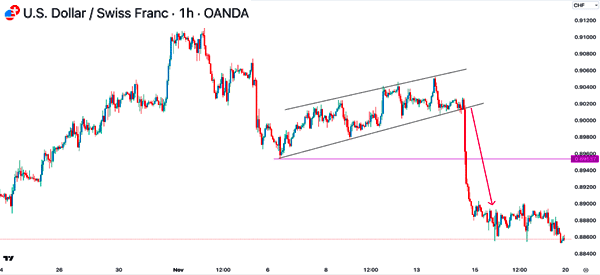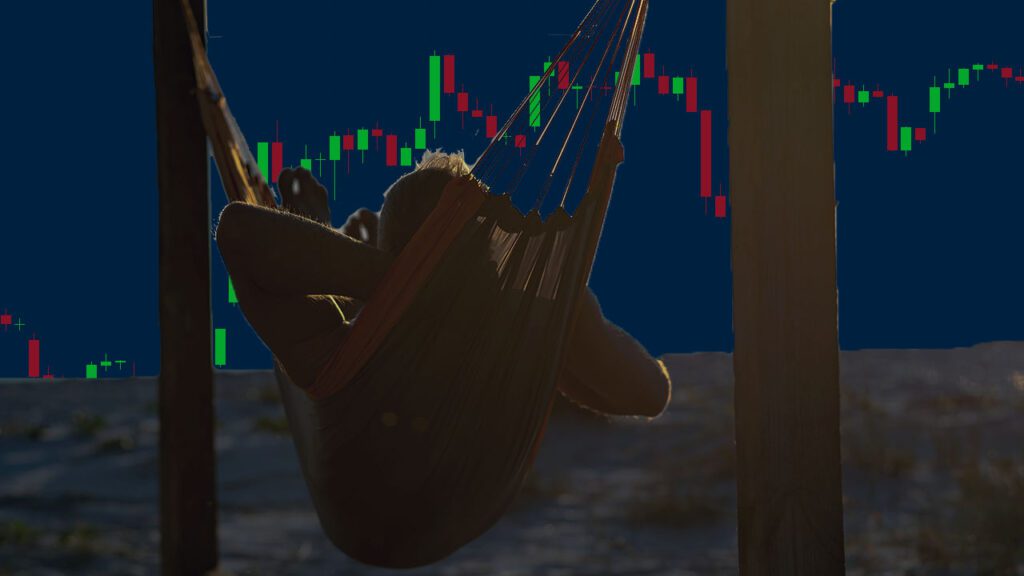Day trading is a popular approach that people and institutions use to make money. It involves doing research on financial assets and either buying (going long) or selling (going short).
There are numerous assets that you can day trade, including stocks, commodities, forex, cryptocurrencies, and bonds. In addition to the generic market, it is possible to trade futures and options, which are a bit complex financial derivatives.
A common misconception about day trading is that it is a scam. While scams exist in the industry, day trading itself is a legal thing that is overseen by regulators like the Securities and Exchange Commission (SEC), CFTC, and the Financial Conduct Authority. Therefore, when done well, day trading can be an exciting career.
The remarkable rise of mobile apps for day trading has led to the belief that this can be done for fun, almost like a game. Or like sports betting. Well, it isn’t.
In this article we will analyze why you cannot treat trading as a hobby and why you should do it professionally to avoid losing money.
Table of Contents
How day trading works
The concept of day trading is quite simple. It starts with a company, known as a broker, that gives traders access to financial assets like stocks, bonds, and forex. Some of the top brokers in the US are Robinhood, Schwab, TD Ameritrade, and Interactive Brokers.
Day traders create their accounts, deposit money, and then start executing trades. They buy assets they expect will rise and short those they believe will fall. For example, if Apple shares are trading at $200, a trader can buy when he expects they will rise to $205.
Alternatively, if they believe that prices will fall, traders can place a short trade. Shorting is a process where they buy shares at a high price and return them when the prices retreat.
Day traders use several approaches to identify trading opportunities. The most popular approach is known as scalping, which involves entering and exiting positions within a few minutes. The goal is to make small profits several times per day.
There are other strategies, including trend-following, reversals, mean reversion, news-based trading, algorithmic trading, and copy trading among others.
Day trading as a profession
There are three main approaches to day trading. First, you can day trade as an individual from your personal account.
This is the most popular approach since one can create an account with companies like Robinhood and Schwab with a few steps. There are no minimum deposits, which makes it ideal for all people.
Day trading as an individual has its pros and cons. The biggest advantage is that it is easy to start and that you keep all the profits that you generate. Its cons are that the learning curve takes a longer period and that it is hard to scale your account.
Related: Team trading vs solo trading
Second, you can be a day trader as part of a proprietary (prop) trading company. A prop trader is a person who trades using a company’s funds and then shares the profits.
Some of the top prop trading firms you can use are Real Trading, The 5%ers, and FTMO.
Finally, you can day trade as part of a large institution like a hedge fund, investment bank, or a family office. The challenge for this approach is that it is hard to get employed by leading companies in the sector.
Day trading for fun
A common question is on how to trade for fun or for entertainment purposes. It is possible to day trade for fun, where your primary goal is to be entertained. In this case, we recommend using a demo or practice account to do it.
A demo is an account that gives you access to the financial market without exposing you to the risk of losing money. All successful traders start their career in a demo account before they move to a live account.
A demo account gives you a chance to learn about the market, make mistakes, and elevate your game.
The other way of trading for fun is after you become an expert in the financial market. As you become more experienced and profitable, your trading process will be more fun for you in the long term.
Day trading becomes fun when you are profitable, not afraid of making losses, and when you have a solid risk management strategy.
In most cases, it is almost impossible to have fun when you are inexperienced or when you are constantly making losses.
What to know when day trading for fun
There are several things you need to know when day trading for fun. Some of these crucial things you should know are:
Day trading is risky
First, day trading is one of the riskiest things you can do in the world, especially without proper knowledge. Most people who start to day trade fail. Statistics show that if 100 people started to day trade today, less than 10 of them would be highly profitable in the long term.
Trading is risky because of the fallibility of the market and the volatility involved. Volatility is defined as the rate of change of a financial asset. A good example of this is shown in the chart below.
In it, we see that the USD/CHF pair formed an ascending channel. In this instance, many traders would have placed a buy trade. But then the pair made a strong bearish breakout.
As a result, many buyers lost a lot of money as it crashed despite having done the proper analysis. Just think you entered a trade like this for fun.

Successful day trading requires a lot of time
Meanwhile, it takes a lot of time from the time you start researching about the market to when you start making money.
At Real Trading, we recommend that our traders spend a few months in our Training Platform. Before a trader moves to a live account, we suggest that they execute about 10,000 trades.
Other companies have their own requirements for moving from a demo account to a live account. In addition to spending more time in a demo account, you should also spend more time learning the theory of the market.
Emotional discipline is key
The other important thing you need to know is that emotional intelligence plays an important role in day trading. It plays an essential part in your decision-making process.
For example, you should be able to handle big losses and big profits. If you lack this discipline, chances are that you will make mistakes when you make a big loss or a big profit.
In most cases, day traders tend to initiate new trades immediately after losing money in a trade. Similarly, they open more trades after having a profitable trade.
Summary
Day trading is becoming more popular as millions of people seek to make money online. In this article, we have looked at how day trading works and some of the ways that one can participate.
In this, we have seen that it is possible to have fun when day trading. This, however, can only happen when you have established yourself well.





